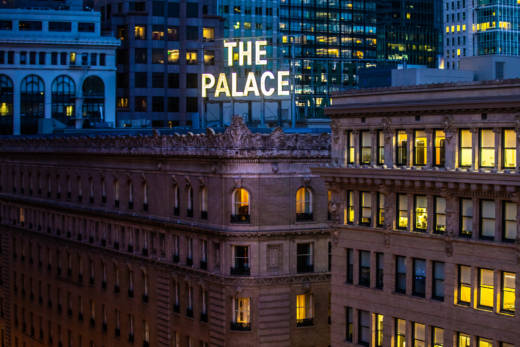Echoing the union's slogan for its Marriott campaign, she adds: “One job should be enough to pay the bills, to put food on the table, to pay the rent.”
In San Francisco, the nearly 2,300 housekeepers, dishwashers, servers, bartenders, cooks and bellmen at seven Marriott-owned hotels -- the St. Francis, the W, the Marriott Union Square, the Palace, the Marriott Marquis, the Courtyard San Francisco Downtown and the St. Regis -- will take part.
“It’s not a union versus industry issue,” says Anand Singh, president of San Francisco’s Unite Here Local 2. “It’s about the workers who make up the fabric of this city standing up and fighting for what they deserve. What they’re asking for is their fair share.”
San Francisco’s 25 million annual visitors contribute well over $9 billion to the economy, the San Francisco Travel Association says.
According to Unite Here, Local 2 workers are working at Marriott-operated hotels representing 15 percent of San Francisco’s 33,000 hotel rooms.
“The company hasn’t taken us seriously enough yet,” says Singh. ”It’s unconscionable that the workers that make the industry tick would struggle to make ends meet.”
The median income of a Local 2 housekeeper is $44,000, says Unite Here. That's low in a region where the federal government recently said a family of four earning as much as $117,400 could be classified as "low-income."
Marriott International said in a statement last week that it has conducted good faith negotiations with the union and that it is still "hopeful that we will reach an agreement on a new collective bargaining agreement without any strike activity." The company said the hotels will continue to operate even in the event of a strike.
The last major hotel strike in San Francisco took place in September 2004. Back then, Unite Here leaders called for a two-week strike at four hotels. In response, management at those hotels and 10 other unionized hotels locked workers out in a standoff that lasted two months.
The two sides eventually agreed on a contract in 2006. It granted workers higher wages, better pensions and full health care benefits, according to Unite Here.
Kevorkian says a major issue is her team's workload. She manages as many as seven housekeepers, who together clean more than 100 rooms a night. That's too many rooms for too few workers in too short a time, she says.
“It’s like they’re testing how far they can go,” says Kevorkian. “I’ve worked as a manager for 11 years, and I’ve never seen that craziness.”
To help cope with the stress, Kevorkian says, she takes an anxiety medication her doctors prescribed to get through her workday.
“My doctor told me to quit my job, but it’s not so easy,” she said. “I’m the backbone of my house.”

